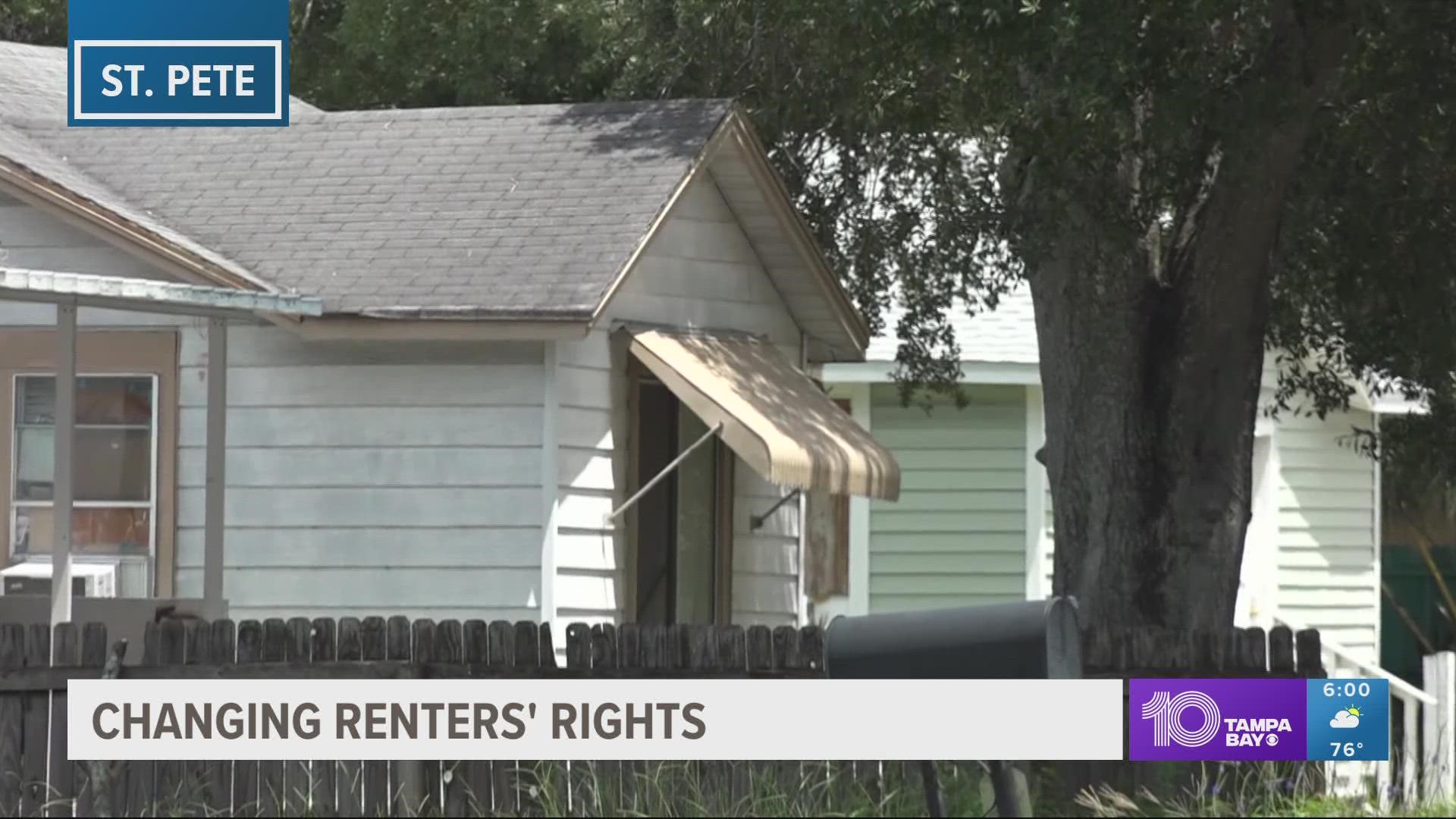ST. PETERSBURG, Fla. — While most of us were just starting to dry out from tropical storm Nicole, St. Petersburg City Council members voted unanimously to approve a new tenant protection ordinance.
The idea is to force landlords to give renters more advanced notice when it comes to rent increases.
But activists who have been pushing for the protections say the new rule doesn’t go far enough.
“I’m disappointed,” said William Kilgore with the St. Petersburg Tenants Union. “It doesn’t go far enough. And it’s not what was originally asked for.”
Kilgore says it’s a small step in the right direction, but one that falls far short of the message they’d hoped city council would send local landlords.
“A message that rent gouging is unacceptable in St. Pete,” he said.
On Thursday, council members unanimously approved the new rule that would force landlords to give renters more advance notice when it comes to rent increases higher than 5%.
The rule calls for 60 days’ notice on a one-year lease, 30 days’ notice between three months and a year, and three weeks’ notice for those renting month-to-month.
That’s far short of a six-month notice requirement the tenants union wanted.
“Yeah, because you can’t find anything in 60 days or 21 days as this is written,” Kilgore said. “Six months gives tenants much more time to find a place in this market, which is totally constrained.”
“You know, I think that was the first step,” Councilman Copley Gerdes said. “And we will continue to look at it going forward.”
Gerdes said the 60-day notice might be extended in the future, but importantly, he pointed out, passing the ordinance gives the city local control.
“You’ve got to have some compromise. And you’ve got to build a base on that,” said Gerdes. “And so, this gives us that base. Again, it brings enforcement inside St. Petersburg. Then it gives us this base of timelines. And then we are going to, as I said, look at the data to make sure that we’re keeping up with that.”
Still, it’s another disappointment for those hoping to stabilize St. Petersburg’s soaring rent prices.
In August, the city council backtracked on an effort to put a rent stabilization measure on the ballot citing a conflict with state law.
“We intend to keep advocating and fighting for six months,” Kilgore promised.
St. Petersburg’s new lease notification ordinance takes effect Jan. 1.
Landlords who violate the new law face a $300 fine for the first infraction, and $500 each time after that.
The City of Tampa and Pinellas County both recently approved similar ordinances requiring landlords to provide increased notification periods when it comes to rent increases.

